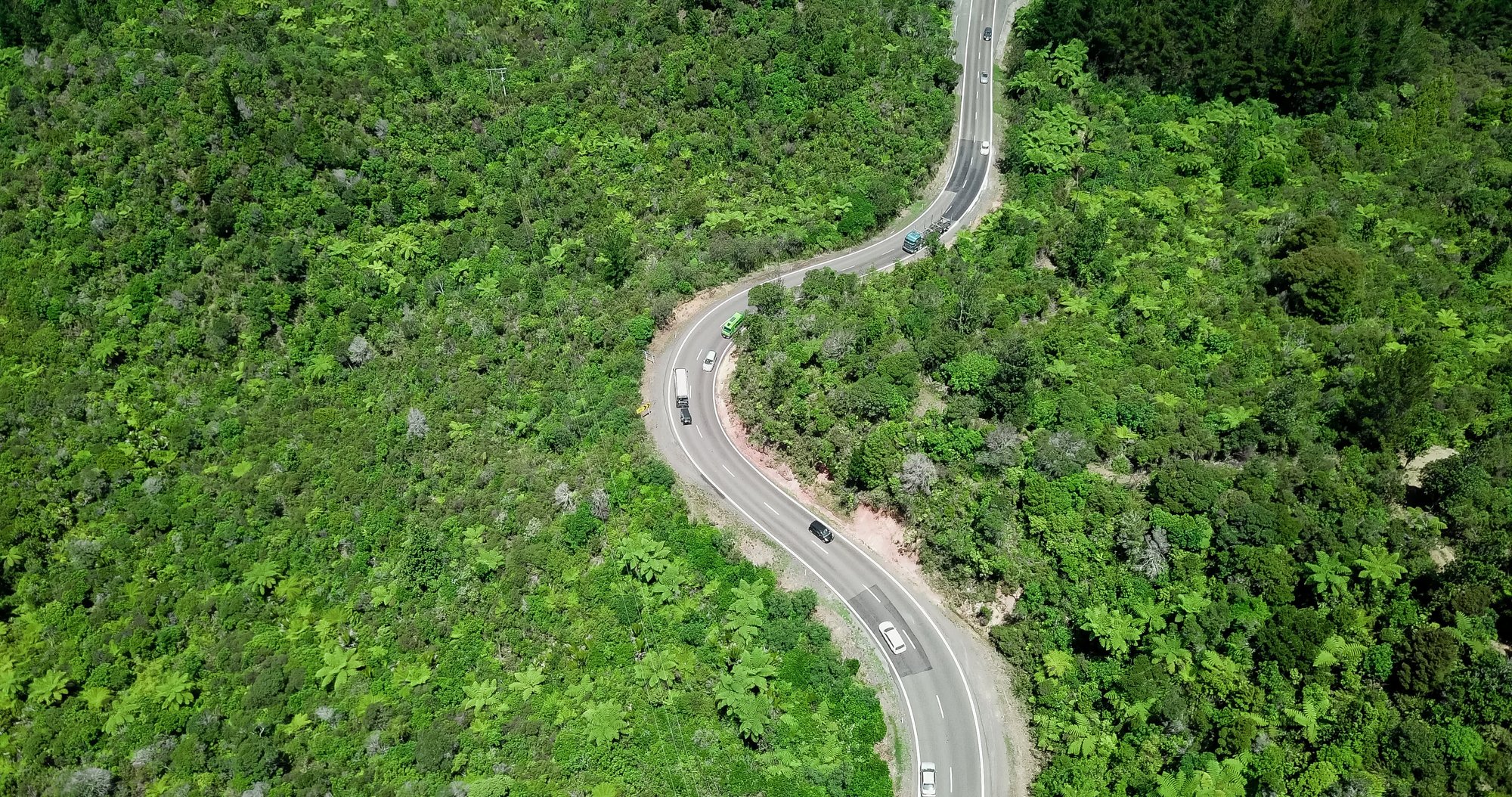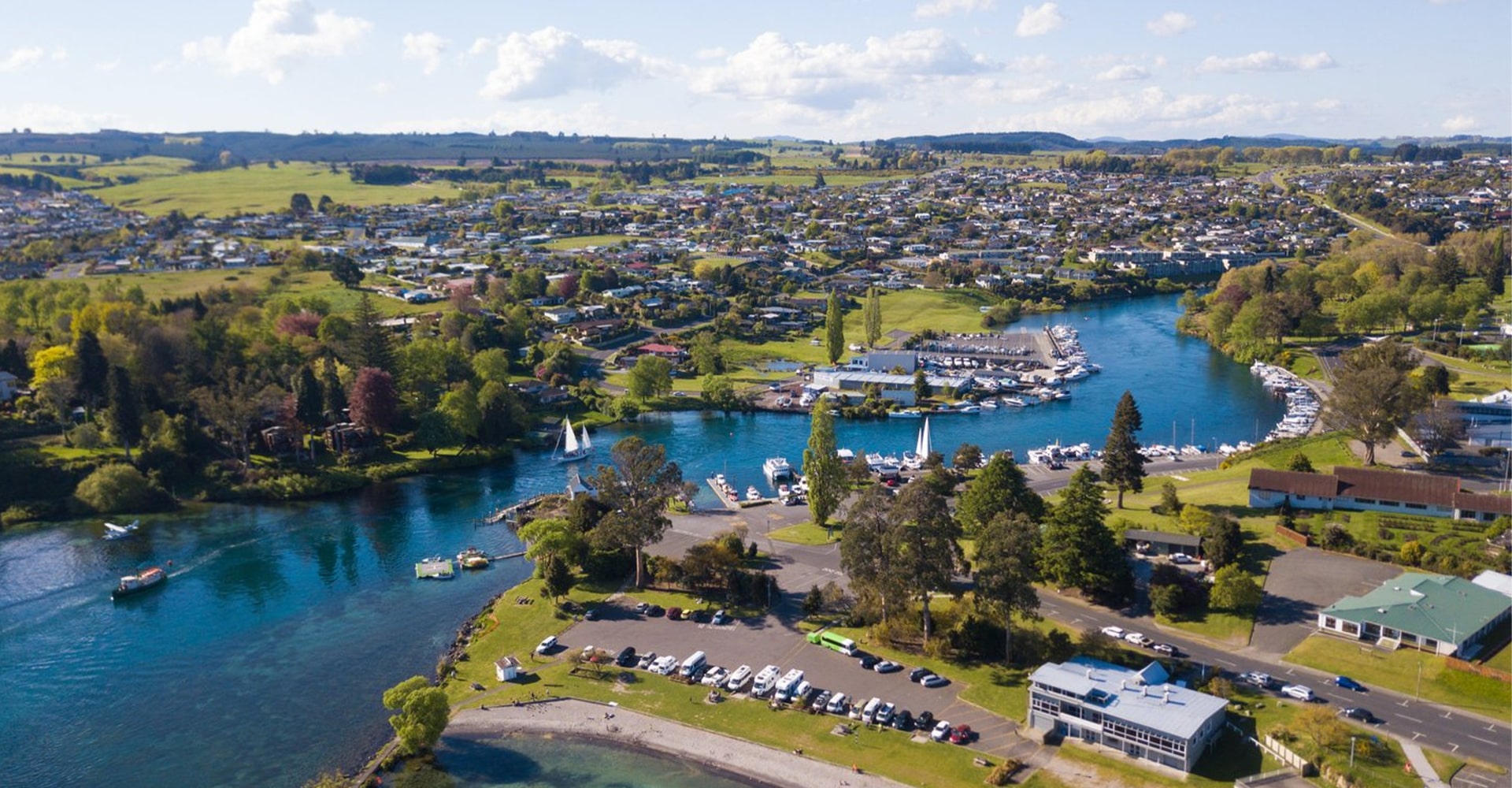Road safety tool provides
evidence-based safety decisions
for New Zealand roads
In 2019, Te Manatū Waka, New Zealand’s Ministry of Transport, launched Road to Zero, a 10-year strategy guiding improvements in New Zealand road safety.
Road to Zero is ambitious. It states deaths and serious injuries should not be an inevitable cost of travelling and sets out a vision where no one in New Zealand is killed or seriously injured on the roads. It aims to reduce road user death and serious injuries by 40% by 2030.
The Abley Road Safety team worked with Waka Kotahi on the development and implementation of the Road to Zero strategy. Key contributions included the development and implementation of safe speed modelling work that resulted in the Safer Journeys Risk Assessment Tool, known as Mega Maps to its many users.

A tool to support planning conversations with road authorities
With a strong track record of collaboration with Waka Kotahi, and our technical capabilities, Waka Kotahi’s Speed and Infrastructure team asked Abley to build a new Pipeline Development Tool for the road safety programme.
This tool helps road controlling authorities and their funding partners plan road safety interventions, understand their benefits, including the expected reduction in death and serious injury, and approve the most effective interventions at a local, regional, and national level.
Carl O’Neil, Principal Advisor at Waka Kotahi, explains why the Pipeline Development Tool is essential:
Safety improvements are one of our biggest priorities at Waka Kotahi as directed by Government. Our initial programme for safety upgrades was sourced using the information from the Mega Maps tool, which shows risk on the road network. We wanted to take this a step further. In 2019, Waka Kotahi were starting to look at safety infrastructure upgrades and speed management for 2021-24, and Waka Kotahi needed a tool to help develop an optimised speed and infrastructure program.
This wasn’t purely an analytical exercise. We needed a tool which we could use with our regional State Highway teams and local councils to help weigh up safety risk on their roads. We also needed data to support hard conversations. An example would be: ‘We know that you are keen to improve safety on this road, but objectively the risk is quite a lot lower than on this other road, and we have limited funding, what do you think we should do in light of this?’
This is where Abley’s expertise was key. Abley had comprehensive knowledge of the geographical and road safety data for all the roads and highways in New Zealand. Abley had also already built Mega Maps for Waka Kotahi, making them the logical partner to make a tool to facilitate planning conversations. Abley are great because they always do what they say, suggest innovations and improvements, and keep to their timeframes.”
Exploring the effectiveness of road safety upgrades
The new tool was called the Pipeline Development Tool because it was designed to help develop a pipeline of road safety projects for delivery. Carl explains how the tool works.
Together Waka Kotahi and Abley developed a tool that shows a spatial representation of every road corridor and intersection in the country. A wealth of road safety information sits under every corridor and intersection. The tool allows the user to click on any corridor or intersection and explore the effect of different safety treatments. Say we put in a median barrier, what sort of safety improvement would we expect to get for the investment? The tool allows the user to look at any road in the country, explore safety interventions, identify the most effective solutions, and then submit the plan into a long list of projects. Waka Kotahi uses that list to build a programme of interventions for funding.”
"Abley has comprehensive knowledge of the geographical and road safety data for all the roads and highways in New Zealand. Abley had also already built Mega Maps for Waka Kotahi, making them the logical partner to make a tool to facilitate planning conversations. Abley are great because they always do what they say, suggest innovations and improvements, and keep to their timeframes.”
Collaborative project prioritisation with local experts
Waka Kotahi used the Pipeline Development Tool to facilitate many rounds of data-led discussion and prioritisation with both Waka Kotahi and local council staff. Carl explained how Waka Kotahi started by identifying the highest risk roads on our roading network and allocating a budget for safety upgrades. The Pipeline Development Tool helped to ground truth that list of interventions, modifying the list based on their local knowledge.
The development process included staff from Waka Kotahi, working alongside Abley experts, conducting over 200 workshops with State Highway and local council staff. In the workshops, Carl and Bridget Carden (Principal Transportation Engineer, Abley) used the Pipeline Development Tool to review road safety interventions proposed by Waka Kotahi, add interventions suggested by local experts, and assess and prioritise local speed and road safety infrastructure projects. Carl recalls:
In some cases the interventions local councils and Waka Kotahi regional teams identified weighed up a lot better overall than some suggested using risk analysis. The Pipeline Development Tool gave us objective safety information to help make those decisions. It was a good tool for putting evidence at the heart of the decision-making process because there were strong opinions about which projects should be prioritised, and the Pipeline Development Tool helped us to bring objective information into difficult conversations.
All road safety projects are important, but when you have limited funds, you have to make some hard decisions. It really challenges a purist view of road safety when you’re talking to people on the ground, which is a great thing. Bringing together local knowledge, points of view and concerns and blending those with an objective view can be quite difficult. These conversations also helped us identify integrated delivery opportunities for safety outcomes. For example, local road and State Highway realignment projects may also offer a chance to bring a safety intervention like speed management in the same location forward.
We talk about road safety interventions in terms of top-down and bottom-up. Top-down describes what we would do from a quantitative risk perspective. Bottom-up describes what we would do using the priorities of staff on the ground at local councils and regional state highway officers. We try to meet in the middle and the Pipeline Development Tool helped bring those top-down and bottom-up views together, assess all projects with an evidence base, and identify the right mix between the two.”


Another step towards evidence-based decision making
Carl explains where the Pipeline Development Tool has added most value for Waka Kotahi.
Pipeline was well received by local councils. They saw the power of the tool, and it was different to anything they’d seen before. We had a lot of requests asking if they could get access to the Tool.”
Being able to explore safety interventions with councils live on a map and see how a project is likely to stack up from a safety perspective is really helpful. Access to real time safety information is a real bonus as well. For instance, if a council is considering a roundabout, we can get immediate information on current risk in that location and the reduction in risk we can expect with that intervention.”
The Pipeline Development Tool has helped steer Waka Kotahi more towards evidence-based decision making. It’s a journey we’ve been on for a while, starting with Mega Maps and the Road to Zero strategy, and the Pipeline Development Tool has definitely helped further that journey. We’re now starting to get into planning for 2024 to 2027. Waka Kotahi will be using the Pipeline Development Tool to undertake a similar exercise with regional Waka Kotahi staff and local councils, looking at the updated risk on the network, projects that are already underway, and what the future safety intervention programme should look like.
Make better road safety decisions with bespoke apps like the Pipeline Tool
We’re proud to be helping Waka Kotahi drive their Road to Zero vision with the Pipeline Development Tool. The tool is ever evolving. Recently we’ve added the ability to explore the effect of speed management around schools as well as the benefits of road safety cameras.
If you’d like to work with Abley to develop a tool or app to help you achieve your road safety goals, we’d love to talk.
Get in touch
If you’ve got a question or want to chat to us about how we can help you, contact us.
We look forward to talking with you.
.png?width=556&height=152&name=Abley_MasterLogo-Website%20(1).png)
